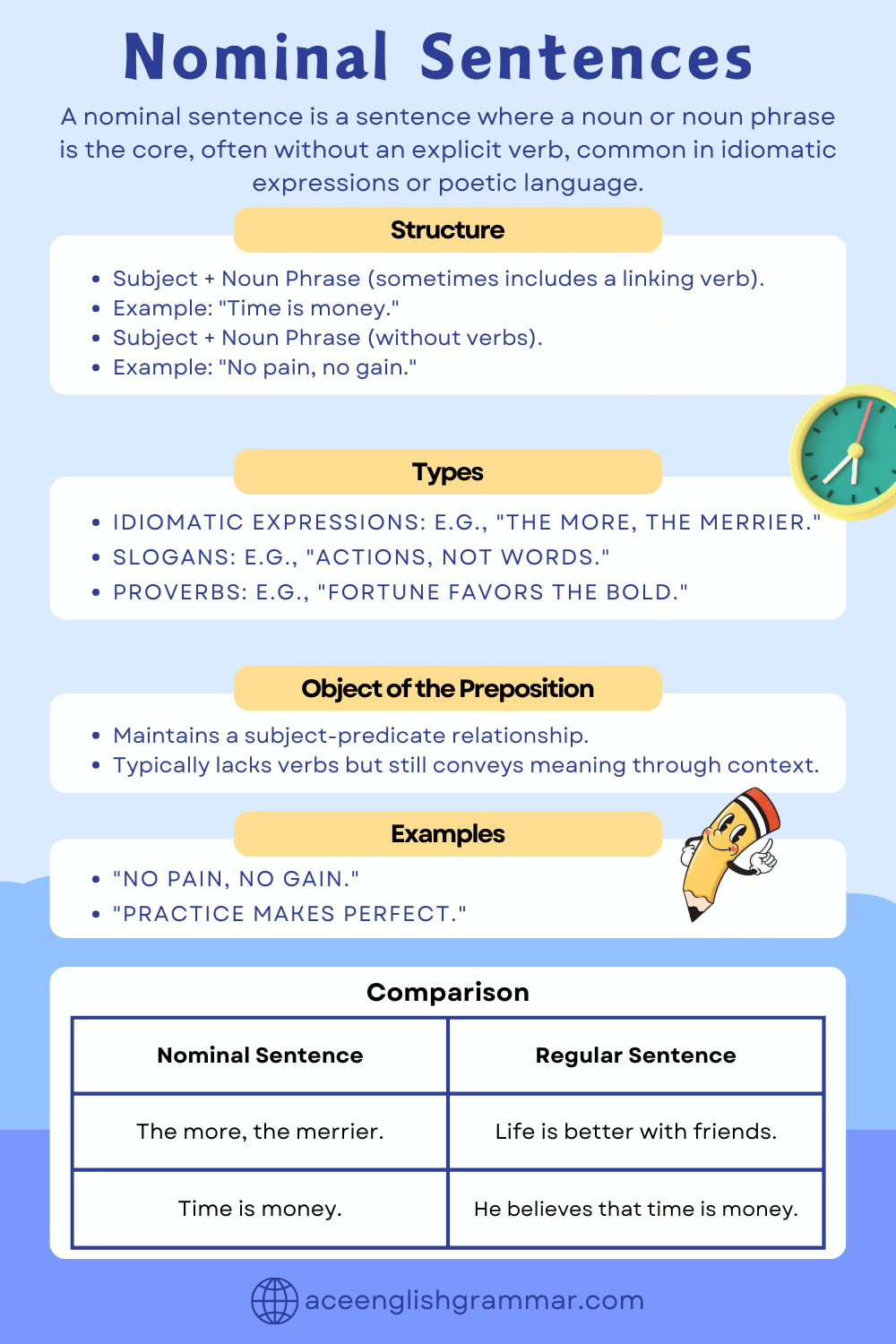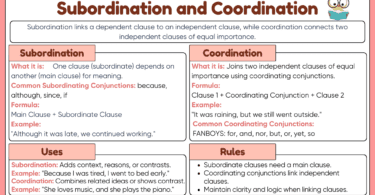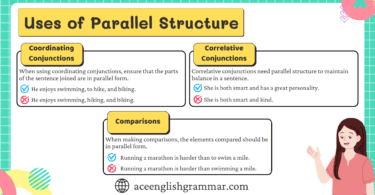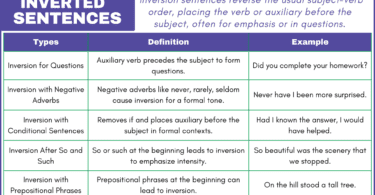In English grammar, nominal sentences play a crucial role in structuring sentences effectively. To help you understand this topic clearly and easily, this article will break down the essentials of nominal sentences with simple explanations and examples, keeping the focus on improving your grammar skills.
Table of Contents
What is Nominal Sentence?
A nominal sentence is a sentence that lacks a verb and is typically made up of a subject and a predicate. It is common in languages like Arabic but rare in English, where verbs are usually required.
Examples:
- The sky blue.
- My friend a doctor.
- The weather cold.
Example of a Nominal Sentence in English:
- “The more, the merrier.”
- “No pain, no gain.” In both these sentences, the subject and predicate revolve around nouns, and though there’s no visible action (verb), they still express a complete thought.
Structure of a Nominal Sentence
Nominal sentence generally consist of nouns or noun phrases, without the necessity of verbs. it is structured in a way that focuses on naming rather than describing an action.
- Subject + Linking Verb + Noun Phrase
Key Features of Nominal Sentences:
- Subject-Predicate Relationship: Like most sentences, nominal sentence still hold a relationship between the subject (what or who the sentence is about) and the predicate (what is being said about the subject).
- Example: “Time is money.” Here, the sentence uses nouns (time, money) to present a truth without requiring complex verb structures.
- Absence of Verbs: Nominal sentence can appear without any verb, making them unique from other sentence types in English, but still recognizable through context.
- Example: “The faster, the better.” No verbs are necessary to get the point across.
Common Usage of Nominal Sentences:
While less frequent in English, nominal sentence is sometimes used in advertisements, slogans, headlines, or conversational expressions where brevity is important.
Examples of Nominal Sentences
Here are some everyday examples to help you grasp nominal sentences better:
- Idiomatic Expressions:
- “No pain, no gain.”
- “The more, the merrier.”
- Slogans:
- “Just do it.” (Nominal sentence structure with an implied subject and verb)
- “Actions, not words.”
- Proverbs:
- “Fortune favors the bold.”
- “Practice makes perfect.”
In these examples, nominal sentences convey a complete thought without needing an explicit verb. They often rely on cultural or contextual understanding to convey meaning.
Why is Nominal Sentence Important?
Nominal sentence is significant because it allows us to express ideas concisely and effectively. By understanding how to use nominal sentences, you can enhance your communication, making it sharper and more impactful in both written and spoken English.
For learners, this aspect of grammar shows how flexibility in sentence structure can lead to more creative expressions, helping in mastering a higher level of language use.
Differences Between Nominal Sentences and Regular Sentences
To further clarify, here’s a comparison between a nominal sentence and a regular sentence.
| Nominal Sentence | Regular Sentence |
|---|---|
| The more, the merrier. | Life is better with friends. |
| Time is money. | He believes that time is money. |
| Practice makes perfect. | If you practice, you will improve. |
Notice how nominal sentences can be shorter and more direct, often relying on implied meaning, while regular sentences are more structured with a subject and verb.
How to Use Nominal Sentences in Writing and Speech
In your writing, you can use nominal sentence to add emphasis or make statements more memorable, especially when writing slogans, titles, or idiomatic expressions. When speaking, nominal sentence can make your point quickly, often leaving a strong impression due to their brevity.
Read More




